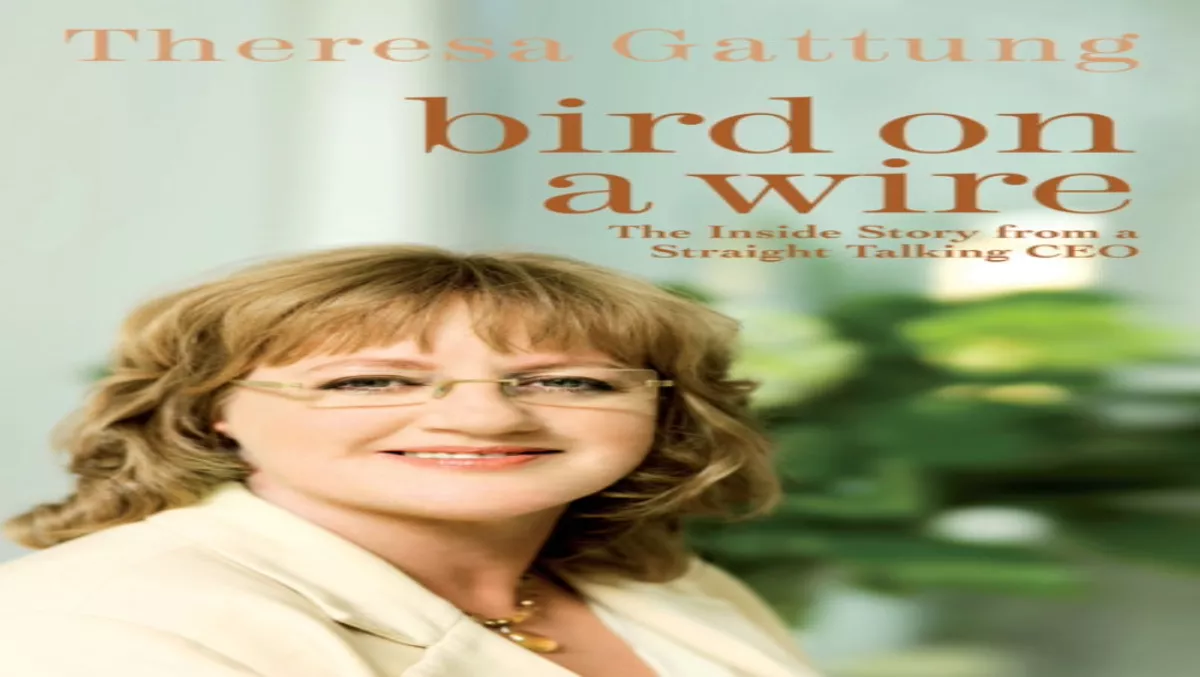There wouldn’t be many book launches that get front pagetreatment on the country’s two major daily newspapers, but Theresa Gattung’smemoir achieved that status on Friday.
The articles were both about Gattung taking a swipe at hersuccessor’s salary, so it was a surprise to see that she makes reference to itonly once in her book Bird on a Wire,although she presumably expanded on it in the pre-launch interviews with boththe Dominion Post and NZ Herald. The reference to the current executivesalaries is made at the end of a long paragraph in which she questions why thegovernment regulated - not only the copper network, but the company’sstructure.
“For a long time after I left Telecom, I beat myself up.What did we miss? What did I miss?How did Telecom suddenly become treated more like a political party than abusiness? And now that I’m long gone I, along with the rest of the country,wonder about the propriety of a company making half the annual profits it did afew years ago but paying its executives considerably higher salaries?”
The latter is a fair question, and it’s had numerousresponses already, for example TUANZ CEO Ernie Newman suggests Telecom executivesget paid more now because it is a much more difficult environment in which tooperate. Another commentator has queried why Gattung claims that Paul Reynoldshas escaped the same scrutiny because he is a man. The presumption being that itstougher for women in business and, possibly, in telecommunications - which isdebatable, but it’s worth noting that in last year’s 40 Most Influential inTelecommunications, there were only three women named (although, the counter to that,is to paraphrase National MP Pansy Wong and say it’s because three good womenare worth 37 men).
So it’s a book in which Gattung reflects on her legacy and rakes over the coalsof the company she led for seven years, and which changed forever on the day that bicyclecourier leaked the government’s plans for LLU, Naked DSL and OperationalSeparation in one fell swoop. And from that perspective it’s fascinating toread how the top executives at the time assessed the threat of government interventionand how surprised they were when it arrived (I can’t help but wondertoo about Bruce Parkes and Mark Ratcliffe, once on Telecom’s exec and now ondifferent sides - Parkes deputy secretary of the MED and Ratcliffe leadingTelecom’s bid to partner with the government in its Ultra Fast Broadbandnetwork). Someday, someone will write a definitive history of that time and Gattunghas done them a service by providing a first-hand account.
It would be possible to argue each point that Gattung raises individually but the main theme to emerge is that as CEO she believed thatit was Telecom’s assets, Telecom’s company and Telecom’s prerogative to answerto their shareholders. All of which is entirely reasonable until you raise theidea that the copper network is the only national, ubiquitous voice and datanetwork in New Zealand. It is, in other words, critical infrastructure.
“I felt that there was no preparedness - by the government,by commentators, by the general public - to face the reality of the pooreconomics of broadband in a low-population-density country like New Zealand.Suddenly it had become like water - everyone’s birthright to have as much asthey wanted when they wanted, preferably with someone else paying,” Gattungwrites.
Well that’s certainly the idea that Vector is currentlypushing with its nationwide television and media campaign. I drove into work thismorning behind a bus with a large advertisement plastered on the back featuringof an elderly man attempting to water the garden with a hose that barelydripped. Perhaps Vector understand now, what Telecom didn’t then, thatbroadband is a political issue, it is seen as a right, but I doubt that anyoneis expecting to get it for nothing - taxpayers are putting up $1.5 billion fora national fibre network for a start.
Bird on a Wire, published by Random House, goes on sale thisweek. RRP $39.95.


